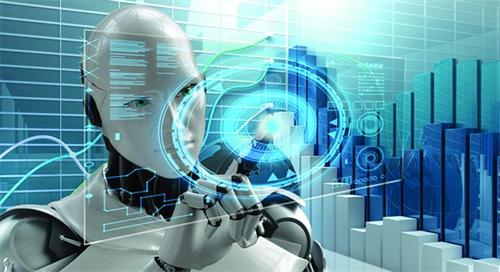Artificial General Intelligence by 2030? Experts Discuss Major Challenges

The quest for Artificial General Intelligence (AGI)—machines capable of performing any intellectual task that a human can—has long been a focal point in the field of artificial intelligence (AI). Ambitious predictions suggest AGI could be achieved by 2030, but experts highlight significant hurdles that may delay its realization.
Opinions on AGI's timeline vary among leading AI figures. OpenAI CEO Sam Altman remains optimistic, expressing excitement about AGI's forthcoming arrival. In contrast, Microsoft AI chief Mustafa Suleyman offers a more cautious outlook, suggesting that achieving AGI could take up to a decade and multiple hardware generations. He emphasizes that AGI should not be conflated with superintelligence, advocating for AI systems that are both useful and accountable to humans. Experts identify three primary challenges hindering AGI development:
Computational Power Requirements
Simulating human-level intelligence demands immense computational resources. Research indicates that training a single AI model to match human performance could consume about 1.4 gigawatts of power, equivalent to the energy usage of a small city. This raises concerns about the feasibility of providing the necessary energy to support AGI systems.
Understanding Human Cognition
Despite advancements in AI, replicating the complexities of human thought, emotions, and common sense remains elusive. A deep understanding of human cognition is crucial for developing AI that aligns with human values and ethics. Without this insight, ensuring that AGI systems act in ways beneficial to humanity is challenging.
Technical Integration and Scalability
AGI requires breakthroughs in integrating various intelligence domains, such as vision, language, and reasoning. Additionally, achieving transfer learning—where AI systems apply knowledge across different contexts—and ensuring transparency in decision-making processes are significant technical challenges that need to be addressed.
The rapid development of AI, especially in pursuit of AGI, has sparked discussions about safety and ethical standards. At the AI Action Summit in Paris, experts like Stuart Russell of UC Berkeley emphasized that prioritizing safety is essential for fostering innovation. He, along with others, called for global minimum safety standards to prevent potential disasters associated with advanced AI systems.
Renowned AI pioneers have also voiced concerns about AGI surpassing human control. They warn of the risks associated with powerful AI systems, including potential threats to democracy and the environment. These experts stress the need for robust regulations and a cultural shift in AI development to ensure that AGI serves humanity positively.
Recent developments suggest that earlier bold predictions about AGI timelines may need reassessment. Reports indicate that scaling up AI models is yielding diminishing returns, with performance gains plateauing despite increased data and computational power. This has led experts to question the sustainability of current AI development trajectories and the feasibility of achieving AGI by 2030.
While the ambition to achieve AGI by 2030 drives significant research and investment, experts caution that overcoming the associated challenges will require time, collaboration, and careful consideration of ethical implications. A balanced approach that combines technological advancement with rigorous safety and ethical standards is essential to navigate the complexities of AGI development responsibly.
Recommend for you:

Tesla's Robotaxi Ambitions Amidst BYD's Revenue Surge
Concurrently, Chinese electric vehicle (EV) manufacturer BYD has reported a significant revenue surge, intensifying competition in the EV market.
How Spatial Computing Is Breathing New Life into VR?
Spatial computing transcends traditional computing by enabling interactions within three-dimensional spaces.
Apple's 'Magic Wand' Patent: Control Devices by Waving Your iPhone
A recently granted patent reveals Apple's exploration into motion-based controls, envisioning a future where users can manipulate electronic devices through gestures made with their iPhones.
How Biodegradable Robots Are Transforming Agriculture with Eco-Friendly Innovation?
As the demand for sustainable farming and eco-conscious solutions grows, degradable robots are emerging as game-changers that blend advanced robotics with environmental stewardship.
